 Some people you just can't help but like. Such is the case with Marc with a C.
Some people you just can't help but like. Such is the case with Marc with a C.I can't quite recall when I first made his acquaintance, but I just remember feeling an immediate sense of connection.
Marc Sirdoreus is, to put it most plainly, my kind of people. There's something to be said for knowing that there's a guy out there who can, at the drop of a hat, help me track down a digital version of The Figgs Lo-Fi at Society High, and that there's at least one other person totally perplexed that only 8 tracks from the super pricey Deluxe-Director's-Cut-I-am-the-Fuckin'-Sea-Box-Set-Special-Edition of Quadrophenia were remixed in 5.1.
We just connect like that.
Yet for all our kinship, I've never actually interviewed Marc. And that was at least one ill that I could easily set right.
--
I think you and I have been talking music – favorite bands and must-have albums and the like – for as long as we've known each other. But, for the sake of proper interview decorum, who are your primary influences as a songwriter?
I'm not sure that my answers will be terribly surprising, but here they are. As far as general composition and patterns go, Pete Townshend is the almighty number one of my list of influences. He's the guy that showed me how important it was to serve the needs of the song before your own, even if that means simplifying when you don't want to, or maybe relying on instrumentation that might not necessarily be what you'd listen to in your own spare time. Thanks to being a student of his work, I realized that even though I made up the songs, I was just a vessel for them, and the audience is going to do whatever they want with the tunes. For example, I'm usually not writing to be humorous, but if it makes the listener laugh, then that's probably what the song was meant to do. The song is king. In Pete's case, the average listener of classic rock radio might not realize that "Bargain" and "Let My Love Open the Door" are respectively about and from the perspective of god. Most people don't get that "Won't Get Fooled Again" is about political apathy. And fewer people yet will realize that "Baba O'Riley" started off its life being more or less from the point of view of futuristic farmers. The songs are meant to be what the audience makes of them, and it's pointless to fight it, so you might as well do what the song demands of you.
Beyond Townshend? The Monkees were huge to me. So was pre-1973 Pink Floyd. A good portion of my classic country worship comes from Hank Williams. The jangly side is probably derived from The Lemonheads. You can trace most of my influences in vocal harmony to the first three Duran Duran albums, and... okay, well I guess it might be kind of a surprise that I would equally count Black Sabbath and Alice Cooper amongst those ranks. Especially Alice. He's one of the most underrated songwriters around, and when it comes to showmanship, he's impossible to fuck with. But the biggest inspiration with Alice Cooper was that after a certain point, he started writing from the perspective of "what would Alice do next," recognizing that he was serving a character, a mythos, and it was best to write for that person's performing capabilities. In that sense, Alice Cooper might be just as important to me as good ol' Pete.
With 10 years' worth of albums, EPs and crazy-ass cover projects under your belt, you've got a rather expansive repertoire. Is there a single track or release that you look back on with particular pride? A lone piece that truly captures what Marc with a C is all about?
Wow, you're just leaping right out of the gate into the tough questions, Z!
(You know I don't fuck around, Marc! :P)
A lot of answers come to mind, but I think the album that to me perfectly encapsulates the best examples of me having an idea, writing it, recording it and keeping it relatively close to how I initially thought it'd turn out? That would unquestionably be my 2007 album Normal Bias. Not only do I love the sound and pacing of it, but I think that all of the songs are really good (most of the eleven songs still show up in my shows quite often, especially "Classic Country Wasn't Multitracked In '61," "Drunk Classic Rock Fans" and "Happy to Be Alive.") I still fantasize about one day getting that release out on vinyl, but I'm too afraid that there's not enough interest in it and I'd be left with a house packed to the ceiling with large unsold reminders that my best album isn't what people want. Sob.
I think if you had to boil it even further down to just one song? I'd be hard-pressed to even pretend that it isn't "I'm In Love with Everyone I Know". Especially the version that is on the RetroLowFi compilation. Usually I'll introduce it during live shows as "everything you need to know about Marc With a C in under four minutes."
2010's Pop! Pop! Pop! marked your first foray into the realm of purely digital recording. Was that a particularly difficult transition for you, what with the old school, lo-fi aesthetic of your work up to that point?
Oh my god, yes. I simply didn't get it at all, but I knew that there were different frequencies that I could be playing with, and I forced myself through learning as much as I could about digital recording in the shortest amount of time possible. The main reason for the jump into digital was not ease (or being sick of broken four-tracks), but really a rather boring one: I'm very hard of hearing, and it was sometimes easier to make edits visually rather than trusting my surgically damaged ears. But now I really enjoy it, and I'm digging that I can stack as many vocal harmonies as my sound card will allow me to play at once without any generational loss.
Getting back to the initial point, though? I was so far in the weeds making Pop! Pop! Pop! that I didn't realize that the initial batch of mp3's that I'd sent out were at 48000 hz, making it play at the wrong speeds on some players. And I never, ever got the mastering of that one properly for digital listening. When it finally came out on vinyl, it sounded so comparatively full and seamless that a few fans actually emailed to ask if I'd re-recorded certain parts. I didn't do that, of course, but even when recording digitally, my head and ears still clearly only think and understand music in terms of analog frequency response.
That released differed greatly from your follow-up full-length Motherfuckers Be Bullshittin', which was a modern day concept album. What was the impetus of that album?
In late 2010, I'm in the car with my wife, and we're debating how on earth I can fit the songs I'd written for the next album together in the same package without making it as schizophrenic as the demo collection we were listening to was coming across. I mean, there's a very misogynistic track called "You're My Princess," songs about technological paranoia, all of these cryptic lyrics, and even a tune about flossing. It was starting to seem more like a mixtape than an album, and I didn't know what direction I needed to go in to make it all come together. All of a sudden, I blurt out an idea so bad that I'm almost embarrassed to have come up with it: make a rock opera based on The Jerk, but this one would be a sequel that (much like the very fairly maligned film The Jerk, Too) was about a different Navin altogether.
That idea quickly (and thankfully) proved to be less than workable (or good), but the seeds were there. Instead, I just kept writing and editing and eventually let the songs dictate what story should be told. Eventually I just started imagining that the songs were the experiences of the subjects of the first song I'd written for the album, "Brian, Jenny & The Mayan Calendar." This made it easier, writing for the actions of characters instead of from a personal vantage point, and then I was free to run headlong into making the album a secret catalyst for spouting off my own spiritual beliefs.
Plus, it made for a pretty striking album cover, no?
I must ask, Marc; how were the truths of The Great Squiddy revealed to you? Were there any golden plates involved (a la Joseph Smith)?
No, no... nothing quite so insane. I was actually alerted to the coming of our Great Wet One via a Facebook event invite.
I've been on a spiritual quest my entire life. No matter how insane your religious beliefs might sound to the average guy, I'll probably sit down and listen to you with rapt attention. I love to learn about the faith that serves as a moral compass getting you through your day. I've worn many religious hats in my day, and I spent most of my life believing that there is no right or wrong god to worship, as long as nobody got hurt.
It turns out that I was wrong. Squiddy is the one true creator, prophet and cephalopod. The icy apocalypse will harm many, and I'm very excited to be destroyed by this deity.
I quickly ascended to the higher ranks of the Atlantian commune, was given access to the original texts, and the Squelders thought that it might be a good idea to start letting The Great Squiddy inform the direction of my music. Otherwise, it'd be really hard for us to convince kids to run away from their homes and join us in this spacious land that Squiddy allows us to keep. But I'm doing my best, and I can just hope that the message isn't lost on the listener.
You're not the first to spread the word of an otherworldly imprisoned cephalopod. Does the Squiddy mythos owe any debt to H.P. Lovecraft?
I'll have to quote The Great Squiddy himself on this one: "It's been done."
Okay, enough about MfBB and its inky dogma. Tell me about your newest project.
Well, every year I put out a free digital release just to say "thank you" to anyone that likes what I do. Sometimes it's a live show, sometimes it's a collection of covers, and this year? It's actually a new EP called Recorded Sound. Besides a radio-friendly version of Rappy McRapperson and MC Wreckshin's "Show Me How To Blow Dudes," it's made up of songs that simply didn't fit on earlier releases, but these weren't mere outtakes... these were songs that I thought could be the backbone of the respective albums that they were slated to be on, but ended up not making sense at the last minute. All of the recordings were done in 2011, so these aren't scratchy old four-track recordings that I polished up. I think it makes up a very interesting whole, and it's a very fun listen.
Your music tends to walk the fine line between easily relatable, slice-of-life musical narratives and irreverent, often bawdy humor. How much of the latter works its way into this EP?
Not as much as you'd think, really. I truly love Rappy and Wreckshin's "Show Me How To Blow Dudes," and I think that it's one of the catchiest songs I've ever heard, and my version of it takes all of the bawdy humor out in an attempt to make a very straight-forward and kid-friendly take on how to properly polish a shoe.
A song like "Touchdown" could be taken as humorous, but I assure you, I wasn't kidding. That is a very "on the nose" version of what I see anytime a football game is on in front of me. A man is being chased while running with a ball. He isn't caught. He is rewarded with kajillions of dollars. He is later cleared of all date rape charges.
And then there's a song like "Another Minute or So," which was something I'd been kicking around for years. It was a little too layered for the album it was intended to be on originally (2005's This World Is Scary as Fuck), but it's actually been a contender for each album since. I decided to just give the song its own EP. To me, the EP is just a big excuse to release that song, and the preceding tunes on this release are simply bonus tracks. Almost.
Recently your radio show The Real Congregation made the jump from the WPRK airwaves to the Nerdy Show podcast roster. What does this new internet format mean for the show?
It means that the show will not suffer due to antiquated college radio equipment any longer. For the final year of my run on WPRK, there were never actually any record needles in the station, and that severely hampered the way that I wanted to do the show. I'm not the kind of guy that just plugs a cable into my laptop, clicks play on an iTunes playlist and is content to be an "MP3J." This show is all about the joy of records in whatever format they were best enjoyed in, but there were times where literally the only working thing in the station was a cord that would connect your iPod to the board (once including the microphones.)
WPRK will always be my favorite radio station, but now that The Real Congregation has moved to podcast format on the Nerdy Show network, I can make the show sound a bit more true to the source material, I'm no longer a slave to FCC rules about content or compression, and I don't have to keep a wildly uncontrollable sleep schedule to host my show anymore. Plus, all of the guys at Nerdy Show are my friends, and pretty much anyone would be happier working with their buddies, I'd think. They put out quality programming about their passions, and I'm only sorry that I wasn't able to be part of their team sooner.
You're very much an admitted pop songsmith, Marc, which still puts you in a bit of a dying breed. Why is pop such a dirty word in modern music?
"Pop" is short for "popular," which makes "pop music" into a rather glaring oxymoron sometimes. I'm not sure when the exact moment was where we decided that "pop" meant drum machines and fake vocals (or when country turned into "Def Leppard with fiddles," for that matter), but that's probably the reason that people run from the term so easily nowadays.
To me, "pop" means using instruments to relay popular feelings into songs that will stick in your head. "Popular feelings" should not be confused with "good feelings," mind you. But if you're thinking about something, and you sing it exactly as it appears in your head over a four-chord progression, you'll be amazed at how many people will cheer as if to say "I've never thought about it that way, but you're right!"
The era of pop that I feel most closely related to is the one that appeared on a Rhino record series called "D.I.Y.," and it brilliantly traces the 1975-1983 era of underground power pop. If it weren't for those songs on that giant series, I probably never would have understood that my songs were indeed "pop," mostly because it's hard to consider yourself "popular music" when you're writing songs about worshiping squids in your garage.
Where do you go from here, Marc? Your output has been characteristically eclectic and prolific throughout 2011, so what can we expect in 2012?
Oh gosh! I don't know yet! I'm toying with another concept album idea that would be a bit more tied to the history of pop songwriting itself rather than telling a story, but that's so early in the "considering it" phase that I can't say for sure that it'll happen. I do have a few things written under this conceit, though, but mostly, the songs tell me when they're ready and what to do with them, not the other way around.
I've also been planning on making an album full of Monkees songs, because that might be the best catalog of pop songs that has ever existed, and I would really like to have fun with some of those melodies. Plus, their songs are actually much trickier to play than you might think, so it's a big challenge to myself: can I do justice to my favorite overlooked Monkees songs? If it ever gets finished and released, you'll know my answer.
And lastly, in addition to sharing a love of handclaps, mid-song break-downs and sing-along choruses, you and I are also members of the extended Sci-Fried family. You'll remember to give those guys a hug for me, right?
I'm definitely going to do that, good sir. Sci-Fried is one of the best nerd rock bands out there today, the band members are some of my favorite people on earth, so it's awesome to have yet another reason to hug them. Thank you, Z. Not just for doing this interview with me, but also for being my excuse for the numerous upcoming sweaty man-hugs.
--
I am of the opinion that, above all else, things should be simple. It is my personal ethos.
Now, I don't mean simple as in uncomplicated, as life itself is fraught with innumerable impediments and last-minute change-ups. Instead I simply mean that things should appear effortless.
Often they are not so natural and unforced. Generally, anything of value requires blood and sweat and tears and swearing and, in my case, arduous do-overs. But if the end result is something that seems simple and natural and unpretentious, then I tend to believe the creator in question has done his job.
The music of Marc with a C is a labor of love by an artist who is quite literally obsessed with music. And that obsession leads him down some strange thematic paths. His musical mechanics are deceptively complex, and everything, from the slant of his lyrical delivery to the precarious placement of individual tracks on an album, smacks of hours burned shaping raw materials into a final product.
But the listening ear seldom notices that.
Instead it focuses on the simple power of the musical narrative, on the shared joy of record collecting or celebrity crushes or a brand of good-natured hopelessness that defies all logic.
Marc with a C remains one of my favorite songwriters not because of the tireless energy he expends on plying his craft, but because his music appears so effortless, so organic. For such is the path to pure pop majesty.






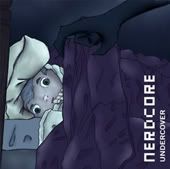
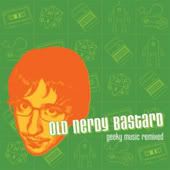
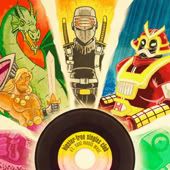
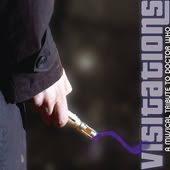
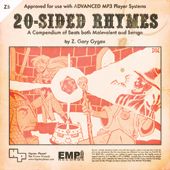
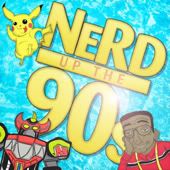







2 comments:
Great interview, Z! Good to hear the latest from Marc with a C. And I think you summed it up just right - the best pop takes serious work to sound so effortless.
Thanks, Christopher! Like the folly of expertly mussed hair, there's a line you have to walk in songwriting as well as production that truly acknowledges the free and spontaneous nature of art without artificially creating it. I think Marc makes a habit of observing both.
Post a Comment